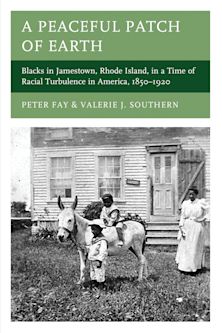- Home
- ACADEMIC
- History
- United States History
- Backcountry Slave Trader
Backcountry Slave Trader
William James Smith's Enterprise, 1844–1854
Backcountry Slave Trader
William James Smith's Enterprise, 1844–1854
You must sign in to add this item to your wishlist. Please sign in or create an account
Description
Backcountry Slave Trader explores the life of William James Smith, a South Carolina backcountry slave trader, whose entries in his business ledger and his correspondence were of unusual specificity. The authors’ analyze these entries and his correspondence, which they argue provide details about the institutional features of the domestic slave trade not found in earlier published works. The authors examine the attitude of Smith and how he conducted his business, and reveal that the interior slave trade and the characterization of the slave trader are more nuanced than previously thought.
Table of Contents
Maps
Acknowledgments
Editorial Policies
Smith Family Tree
Table of Monetary Equivalents
Introduction
Chapter One: Origins of a Slave Trader
Chapter Two: A Peculiar Trade in a Peculiar Institution
Chapter Three: The Market and the Nature of the Trade
Chapter Four: Novice Trader
Chapter Five: Maturing Trader
Chapter Six: Provisions
Chapter Seven: High Prices, High Profits
Conclusion
Epilogue
The Letters to Elihu Penquite Smith
Slave Trading Ledger of William James Smith, 1844-54
About the Authors
Product details
| Published | Nov 20 2019 |
|---|---|
| Format | Ebook (Epub & Mobi) |
| Edition | 1st |
| Extent | 156 |
| ISBN | 9781498590839 |
| Imprint | Lexington Books |
| Illustrations | 13 b/w illustrations; 1 tables; |
| Series | New Studies in Southern History |
| Publisher | Bloomsbury Publishing |
About the contributors
Reviews
-
Two ‘hot’ topics in history today are the too-long neglected story of the internal slave trade—a massive forced migration of people across the South—and slavery’s role in the development of capitalism. William James Smith’s ledger helps us understand both by showing how a small-time capitalist slave trader plied his trade, something historians have rarely explored. In Backcountry Slave Trader, therefore, the Racines make an invaluable primary source readily available. And they do much more. They provide a deft discussion of the social and cultural context in which Smith operated and an insightful analysis of what his ledger and letters reveal about the internal slave trade.
Gaines M. Foster, Louisiana State University
-
The American domestic slave trade was a very lucrative and disturbing business that was economically beneficial to the slave seller, the buyer, and the middleman. In Backcountry Slave Trader: William James Smith’s Enterprise, 1844–1854, Philip Noel Racine and Frances Melton Racine draw from the ledgers of the upcountry slave trader William James Smith to reveal how he used labor market information, cultivated close ties with slave owners and sellers, made wise decisions in purchasing slaves for resale, and applied sound fiscal management techniques, all of which contributed to his success in the trafficking of enslaved individuals. Backcountry Slave Trader is an interesting read filled with fascinating and controversial insights into a complex business venture.
Orville Vernon Burton, Clemson University
-
Given the vast literature on American slavery, surprisingly few studies have been conducted on the domestic slave trade. The studies that do exist focus for the most part on large-scale traders based in the South’s major cities and towns. In bringing together and expertly contextualizing the antebellum letters and ledger of William James Smith—a small-scale, backcountry slave trader—Philip Noel Racine and Frances Melton Racine have not only filled a historiographical gap but have also made a major contribution to slavery studies. Backcountry Slave Trader: William James Smith's Enterprise, 1844–1854 merits strong praise.
Peter Coclanis, University of North Carolina at Chapel Hill

ONLINE RESOURCES
Bloomsbury Collections
This book is available on Bloomsbury Collections where your library has access.



































